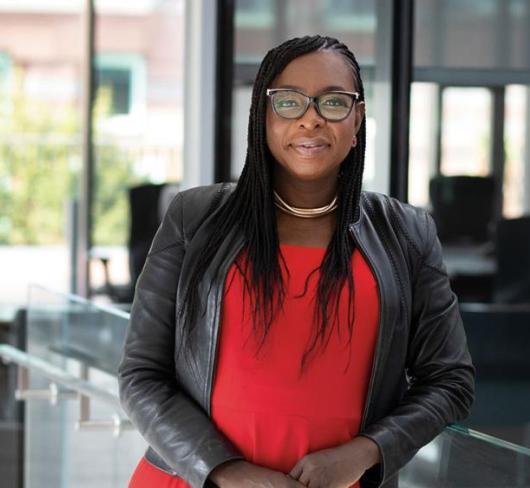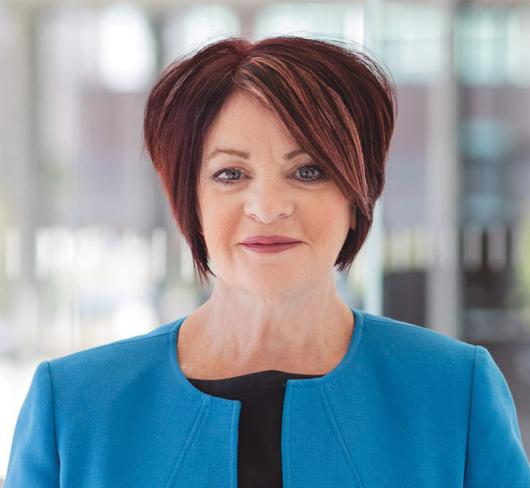Becoming an Ally (Equity and Women's Services)
Anne Bishop is a soft-spoken white woman in her fifties, a lesbian, a popular educator, and a community development worker. She lives on a farm in Nova Scotia with her partner and an assortment of animals. She is a collector of vintage farm implements, of which her favourite is an adjustable garden cultivator, made in Brantford, Ontario, late in the nineteenth century.
For almost 30 years Anne Bishop has worked in the field of international development and has been part of groups struggling to achieve social justice. She currently provides diversity and employment equity training for the Nova Scotia public service.
Bishop is the author of two extremely insightful books, Becoming an Ally: Breaking the Cycle ofOppression in People and Beyond Token Change: Breaking the Cycle of Oppression in Institutions. She recently shared her work with ETFO members.
Becoming an Ally – the book
Bishop says that we need to understand how oppression works and how layered and complex the issues are before we can work effectively for our own liberation, and before we can be allies in the struggles of other people experiencing different forms of oppression.
In the preface to the second edition of Becoming an Ally, Bishop writes:
“I began writing Ally because I was concerned about how many people, deeply engaged in theliberation of their own group, seemed not to be able to see their role in oppressing others, and how thatcomes full circle and perpetuates their own oppression …. I was intrigued by how we reproduceoppression in spite of our best intentions.” (p. 12)
Bishop explores the historical and psychological roots of oppression and examines the structures and beliefs that support it. Stories from her own experience in community development and popular education render her analysis accessible and lively.
The final chapter is a practical and informative “how-to” manual: how to be an ally, how to work with allies, how to educate allies. The glossary and references provide a rich resource of background material. The book is an excellent resource both for people just beginning to think about these issues and for seasoned equity practitioners.
The Workshops
In September, the chairs of ETFO’s local Equity and Social Justice and Status of Women committees were in Toronto participating in Leadership 2006. The two groups met with Anne Bishop for a workshop designed to help members explore their own biases and broaden their view of “doing equity work.”
Here is some feedback from participants:
“It is easy to think that inequity doesn’t exist when you have never personally experienced it.”
“The workshop acknowledged the intrinsic bias we have and made me realize that this comes in layers,rather than being black and white or clearly defined.”
“Helpful in understanding people’s motivation to remain unmotivated in issues of equity.”
In her second workshop, Bishop used the movie Crash as a catalyst for discussion. She led 28 women members through an intense exploration of the intersecting issues of race, sex, and class. Participants reflected on the
strategic use of privilege in anti-oppression work.
Anne Bishop defined an ally as “someone who works toward systemic transformation from the privileged side of the line,” and presented the “Five Keys to Becoming an Ally.” These are:
- Understanding the structural/systemic nature of oppression and privilege
- Understanding that the person on the oppressed side of the line can see more of that form of oppression
- Understanding that an ally is in a secondary or support role, following the lead of the people who experience that form of oppression
- Understanding that the word of a member of a privileged group carries more weight, especially with the dominant group
- Understanding that it is important to be engaged in your own liberation and your work as an ally at the same time, and to use the learning back and forth.
The Raft
Bishop’s image of the raft in the river will last in the memories of all the workshop’s participants. She told participants that the great majority of people float along thinking inequity has nothing to do with them. They are thinking, “I don’t hate anyone; I think everyone is equal; I’ve never hurt anyone deliberately–so when talk turns to racism or sexism or heterosexism, it’s not about me.”
However, when you begin to understand that most of oppression is structural, it is no longer okay to float around doing nothing. You realize that your raft is floating on a river with a strong current of racism, sexism, and other forms of oppression. This current is hurting marginalized people and giving privilege to people in dominant groups every day. To ride the current is to go with it, agree with it, take part in it. The only other choice is to oppose it as actively as you can; that is, to paddle upstream against it.
Some feedback from participants:
“Anne’s statement that “we are all racist” has made me question my own actions, beliefs, ideologies –we all need to be reminded to explore our own biases on a regular basis.”
“[I was particularly inspired by] the fact that you can bring together a group of people from all races,areas, beliefs, etc., and that they could be professional, open, and honest in their discussions. I alsoam inspired to take back my thoughts and knowledge and get INVOLVED.”
Participants in this workshop will continue to discuss and reflect on the issues raised as part of a professional learning community that will be located on the ETFO Equity Network.
ETFO offers several other programs that are designed to bring potential allies together.
- ETFO’s equity-oriented committees – Aboriginal Education; Anti- racist Education; Disability Issues; Human Rights; Lesbian, Gay, Bisexual, and Transgender Members; Status of Women – try to meet at the same time at least once a year, to share experiences and to sup- port each other’s work.
- The ETFO Equity Network (www.etfoequitynetwork.org) is an elec- tronic network now available to all ETFO members interested in equity issues. Registered members have access to discussion forums where they can interact with colleagues throughout Ontario. The forums include: Lesbian, Gay, Bisexual, Transgender Issues; Disability Issues; Aboriginal Issues; Racial Minority Issues; Standing Commit- tee Member Area; Local Equity Committee Member Area, including Status of Women Committees. The network also provides access to a wide range of information and resources.
- Breaking the Silence: Men and Women Working Together to End Violence against Women, an annual program, provides a safe place for men and women to explore the issues of violence against women, separately and jointly, and to discuss how to work together to change attitudes and behaviour.
Resources:
For more information about Anne Bishop and her work: www.becominganally.ca
Bishop, Anne. Becoming an Ally: Breaking the Cycle of Oppression in People. Halifax: Fernwood Publishing, Second edition, 2002.
Bishop, Anne. Beyond Token Change: Breaking the Cycle of Oppression in Institutions. Halifax: Fernwood Publishing, 2005.
McCaskell, Tim. Race to Equity: Disrupting Educational Inequality. Toronto: Between the Lines, 2005.

